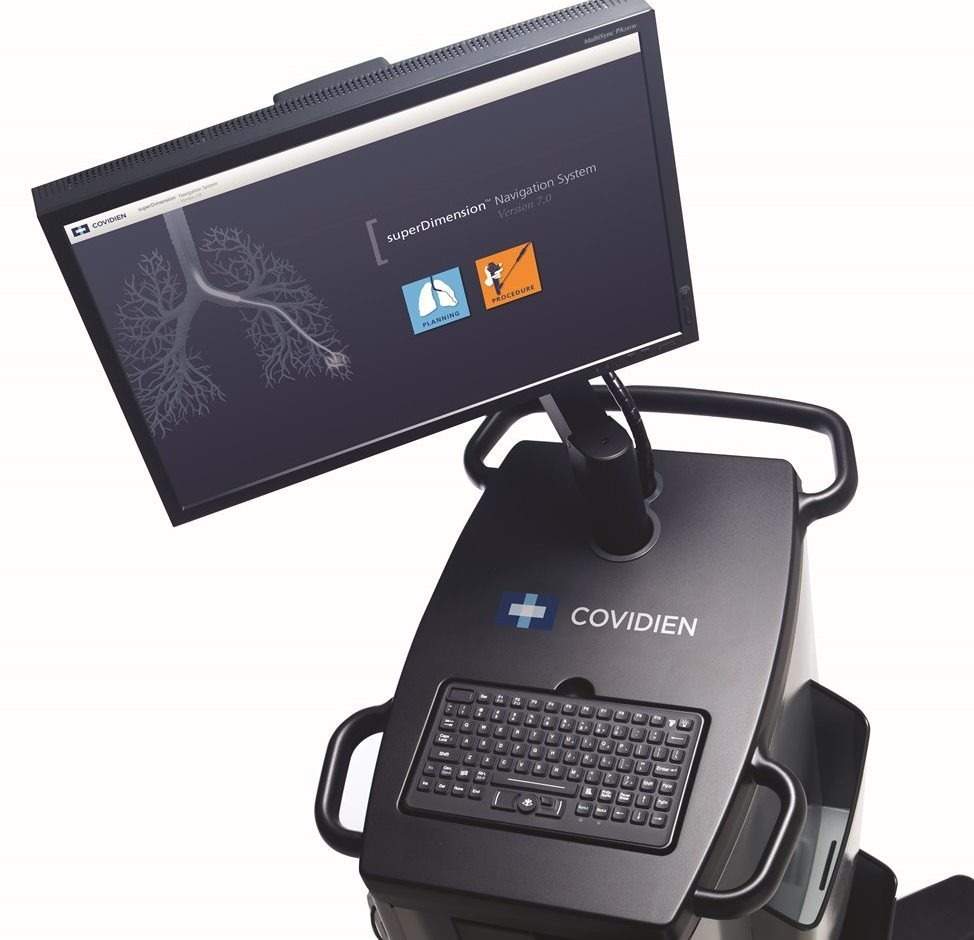
Medtronic stated that its NAVIGATE study included a key finding where 65% of patients diagnosed with primary lung cancer were at early stages (Stage I or II) of the disease. Early detection of the disease can be crucial in improving patient outcomes in the long term.
Results from the study were published in the Journal of Thoracic Oncology publication where 12 month follow up for 1,215 patients at 29 medical centers in the US was presented.
Lung cancer is one of the leading causes of cancer-related deaths in the US. Currently, a majority of lung cancer patients are diagnosed in late stages (Stage III or IV), during which the long term survival rates can decline drastically.
Early diagnosis (Stage 1) can help in increasing the estimated 10 year survival rate to 88%. Early detection and immediate treatment can dramatically increase the long-term survival rate.
ENB procedures offer a minimally invasive, GPS-like approach to access difficult-to-reach areas of the lung and can aid in diagnosing lung disease and can also lead to an early, personalized treatment.
NAVIGATE study enrolled subjects at 37 sites across the US and Europe. Results from the study showed that the diagnostic yield of ENB (the proportion of patients obtaining ENB-aided diagnosis) as supported by one-year follow-up.
The ENB procedure was successfully completed in 94% of study patients and an ENB-aided diagnosis was obtained in 73%. Compared to published diagnostic yields of 65-73% in previous small, single-center, and retrospective studies across different devices, the one-year diagnostic yield in NAVIGATE is consistent and generalizable across diverse operators.
A major finding in the NAVIGATE data was that 65% of patients diagnosed by physicians with primary lung cancer were at early stages of the disease (Stage I-II).
Nearly half of the lesions were less than 20mm in diameter and with the study, the company confirmed that ENB is suitable for evaluating small peripheral lesions. The procedure is also claimed to have lower complication rates than previously published for transthoracic needle biopsies.
To improve the visibility of lung lesions in real-time and aid in improved diagnostic accuracy, the new superDimension Navigation System Version 7.2 with Fluoroscopic Navigation Technology uses advanced software, according to the company.
Medtronic Minimally Invasive Therapies Group, Lung Health vice president and general manager Emily Elswick said: “We are dedicated to improving lung cancer care across the continuum with platform technologies that identify and manage patients, improve diagnostics, optimize treatment and accelerate recovery.
“At Medtronic, we are setting the standard for clinical and economic evidence that substantiates the value of our innovative platforms for patients, providers and payers worldwide. Lung cancer remains the deadliest cancer and Medtronic is uniquely positioned to innovate, invent and disrupt with products and services that contribute to longer term survival.”



